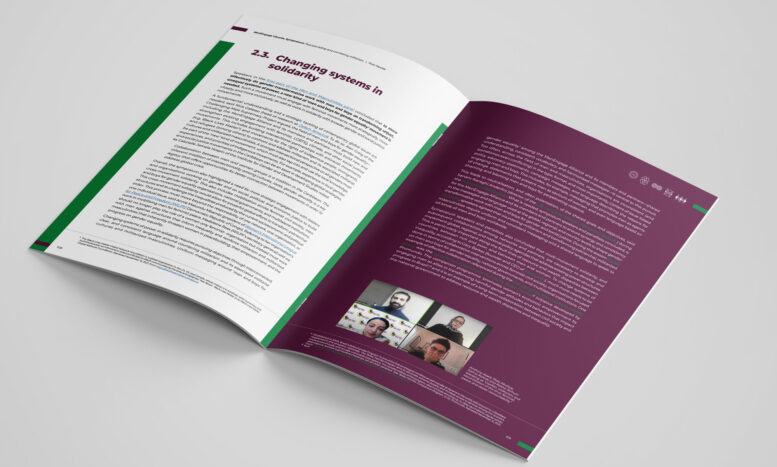What I learned writing about militarism & masculinities for the Ubuntu Symposium
At the time of the ongoing Russian military invasion of Ukraine, it is a good moment to pause and reflect on how our community can best address militarism and its associated militarist cultures and militarised masculinities. In this blog post, Dr Piotr Pawlak shares his insights and reflections on writing the paper, Peacebuilding and Countering Militarism, a summary report of discussions at the 3rd MenEngage Global Symposium.
Click here to read the Summary Report: Peacebuilding and Countering Militarism.
The paper was part of a series of summary reports based on the MenEngage Ubuntu Symposium. Click here to see all of the reports in this series.
The 3rd MenEngage Global Symposium (the Ubuntu Symposium) discussions reflect the interrelated crises the world is facing today. I hope that the paper on engaging men and boys in peacebuilding and countering militarism, one of its kind summary of discussions from the Ubuntu Symposium, which explores how wars and conflict are enabled by individuals, institutions, and ideologies that glorify violence and fund the war system, will help to point the way forward.

The Ubuntu Symposium online sessions on the topic allowed for an unprecedented level of discussion, reflection, and knowledge-building. It was a space for capturing knowledge, experiences and lessons learned shared by the panellists and audience – governments representatives, private sector stakeholders, experts, academics and activists.
Now, as our community continues to call for a political settlement to end the Ukraine and Russia conflict, I would like to reflect on some inspirations from working on the paper and discuss some challenges when writing about the topic of men, peacebuilding and countering militarism.
Personally, I was inspired to reaffirm my own commitment to gender equality, and to strengthen my position on the importance of working with men and boys for social change. Writing the paper propelled me to further rethink how my own culture and social surroundings give rise to socially constructed gender norms that associate masculinity with power and violence, two characteristics that play an important role in driving the Russia-Ukraine conflict, and any other conflict and insecurity worldwide.
Writing the paper encouraged me to act
Writing this paper gave me the motivation to speak directly to family members and friends in my home country Poland, which directly borders the western part of Ukraine, about how our society and culture reinforce and sustain widespread patriarchal values that shape and reinforce patriarchal and militarised masculinities. I believe that each person, individually, has the power to make a difference. More than ever, I feel energised to continue, support and expand my work on peacebuilding and countering militarism and its associated militarist cultures and militarised masculinities.
This paper, which consolidates lessons, experiences, and discourse from the Ubuntu Symposium online sessions, analyzes the state of the field of engaging men and boys in peacebuilding and countering militarism, and presents the opportunities, challenges, and gaps in continuing to advance this thematic area.
A need for more practical examples
Writing about the subject of engaging men and boys in peacebuilding and countering militarism left me longing for more practical examples of how my society at large can translate into practical actions the wealth of approaches and strategies presented during the Ubuntu Symposium online sessions.
Much of the work on addressing patriarchal and militarised masculinities have focused on individual men, often in the Global South, from poor communities. I was left wondering how the organisations and institutions that I am part of – academic institutions, private sector and workplaces, and even governments – can transform systems of power that drive and influence militarism and its associated militarist cultures and militarised masculinities.
I hope that the reflections alongside the actionable recommendations presented in the paper are a good start to finding answers to these important questions. I hope that the paper will support the understanding of the topic among not just professionals, academics and those working in the field of men for gender equality, but also can be an eye opening read for a wider public, men and women, who navigate in the challenging times of today.
Dr. Piotr Pawlak, is the author of Peacebuilding and Countering Militarism, a summary report of discussions at the 3rd MenEngage Global Symposium. Dr. Pawlak is an independent senior gender consultant working with men and boys, alongside women and girls, to promote gender equality and social justice for positive development outcomes. He can be reached at: Piotr.m.pawlak@gmail.com.
